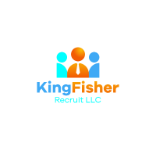Building a Strong Employer Brand: Strategies for Success
In today’s competitive job market, attracting and retaining top talent requires more than just offering competitive salaries and benefits. Building a strong employer brand is essential for organizations to stand out as employers of choice and attract the right candidates. In this in-depth guide, we’ll explore the key components of employer branding and provide actionable strategies for strengthening your organization’s brand reputation.
Understanding Employer Branding
Employer branding refers to the perception and reputation of an organization as an employer. It encompasses how a company is perceived by current employees, prospective candidates, and external stakeholders. A strong employer brand communicates the organization’s values, culture, mission, and commitment to employee satisfaction and development.
Why Employer Branding Matters
A strong employer brand has numerous benefits for organizations, including:
- Attracting Top Talent: A positive employer brand attracts high-quality candidates who are aligned with the company’s values and culture. It reduces recruitment costs by attracting candidates who are more likely to thrive within the organization.
- Employee Engagement and Retention: Employees are more likely to be engaged and committed to organizations with strong employer brands. A positive work environment, clear career progression opportunities, and a strong sense of purpose contribute to higher employee satisfaction and retention rates.
- Enhanced Reputation: A strong employer brand enhances the organization’s reputation as an employer of choice within its industry and community. It creates a positive perception among customers, partners, investors, and other stakeholders, contributing to overall brand credibility and trust.
Strategies for Building a Strong Employer Brand
- Define Your Employer Value Proposition (EVP): Start by defining your organization’s EVP, which outlines what sets your company apart as an employer. Identify your unique culture, benefits, career development opportunities, and values that appeal to prospective candidates.
- Communicate Your Brand Story: Share your organization’s brand story through various channels, including your careers page, social media, employee testimonials, and company events. Highlight your company culture, employee achievements, community involvement, and opportunities for growth and development.
- Provide a Positive Candidate Experience: Ensure that every interaction with candidates, from the initial application to the final hiring decision, reflects positively on your employer brand. Provide timely communication, personalized feedback, and a transparent recruitment process to create a positive candidate experience.
- Invest in Employee Development: Demonstrate your commitment to employee growth and development by offering training programs, mentorship opportunities, and career advancement paths. Invest in continuous learning and skill development to empower employees to reach their full potential.
- Promote Diversity and Inclusion: Foster a diverse and inclusive workplace culture where employees feel valued, respected, and empowered to bring their authentic selves to work. Promote diversity in hiring practices, leadership representation, and employee resource groups to create a more inclusive environment for all.
- Engage Your Employees: Engage employees in shaping and promoting the employer brand by encouraging participation in employer branding initiatives, such as employee advocacy programs, referral programs, and employer brand ambassadorships.


